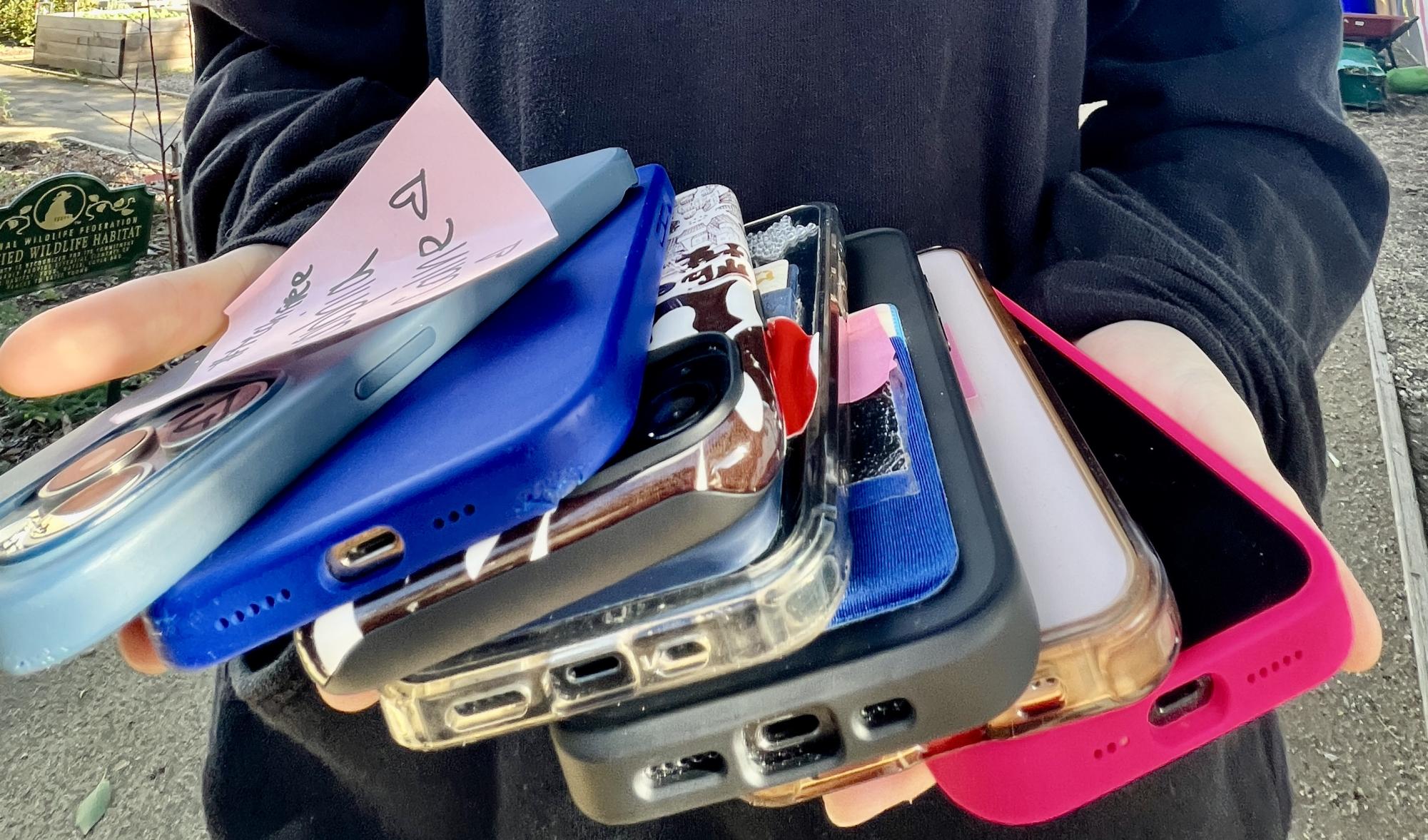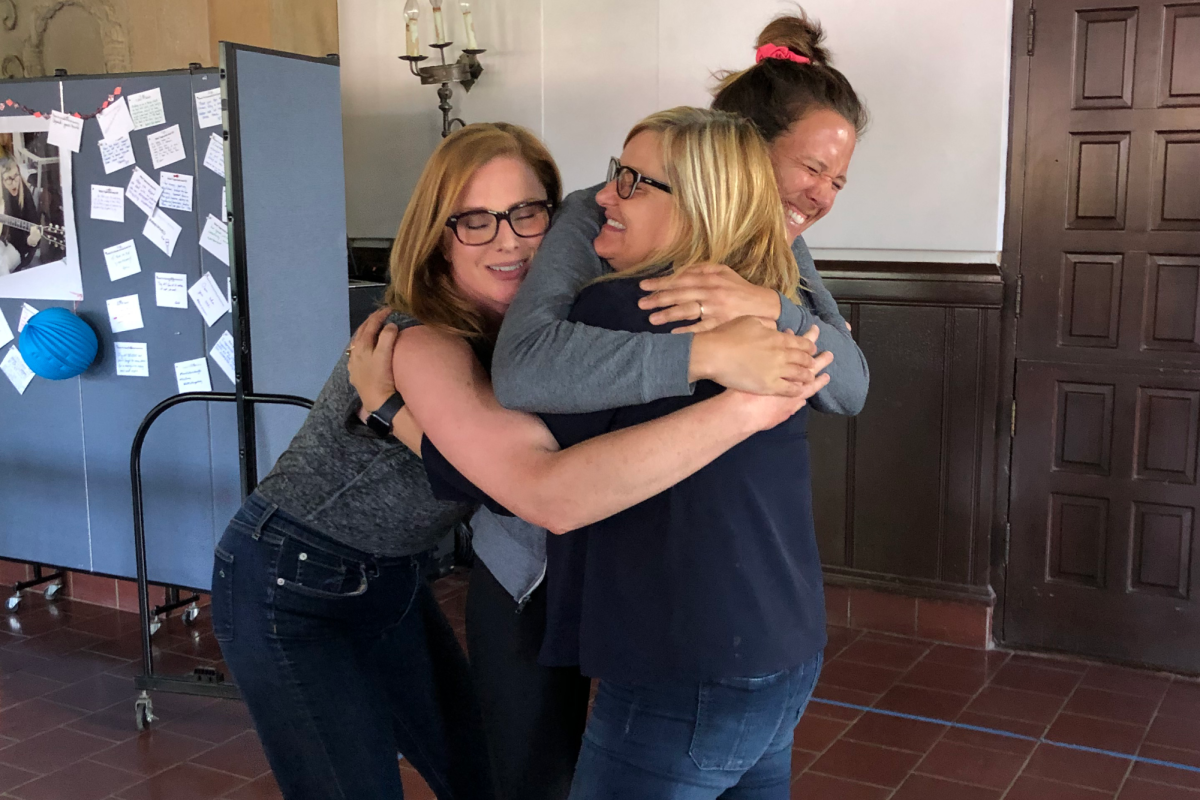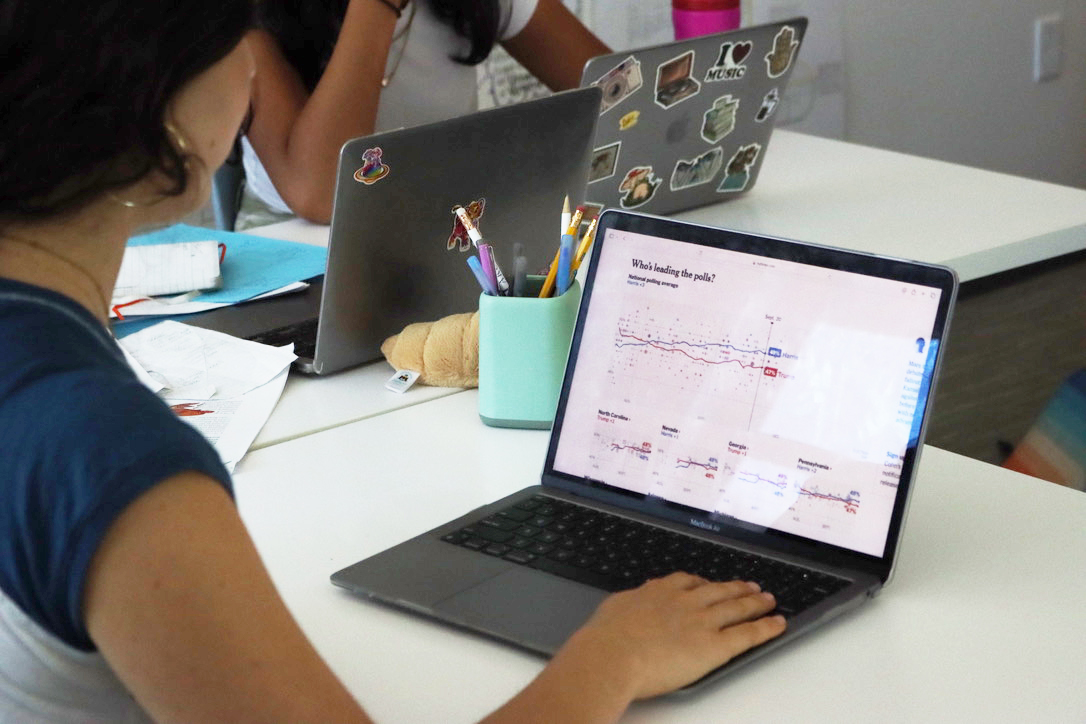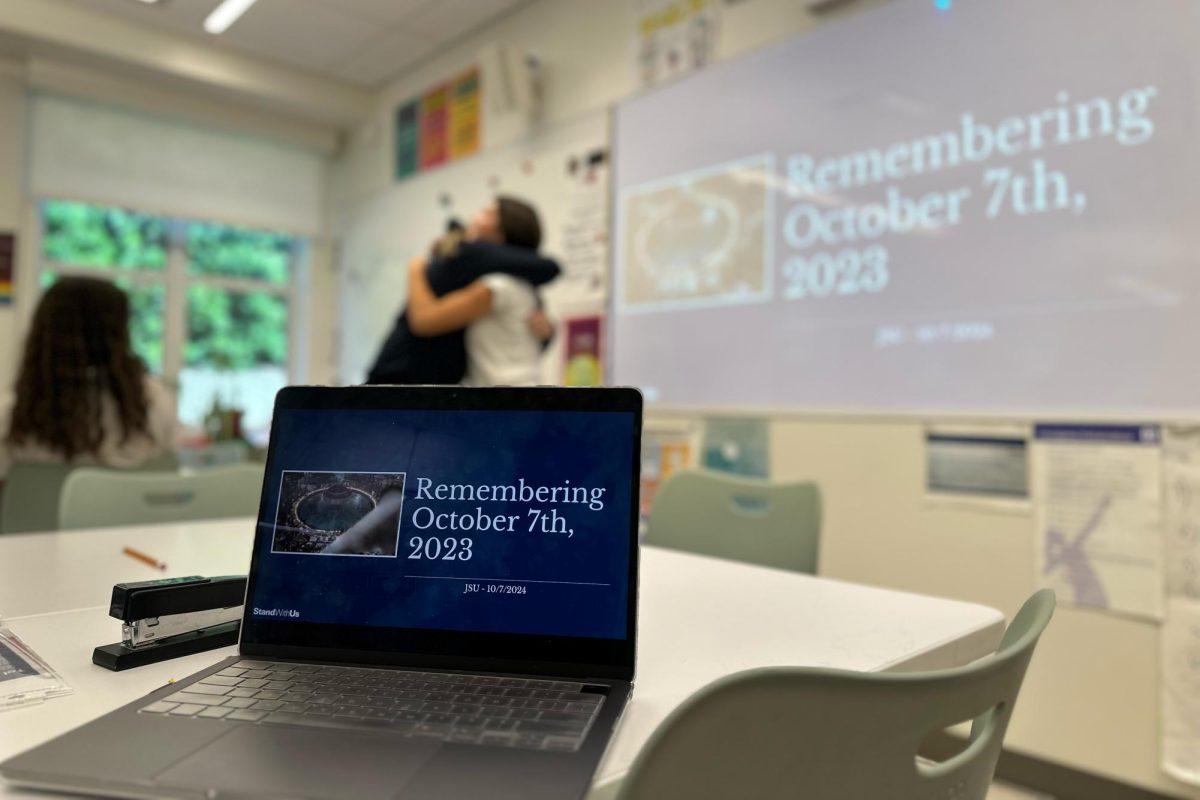Every Archer student relies on technology as a classroom tool. All students receive a Macbook Air laptop during their time at Archer to complete assignments, respond to emails and organize their academic life. Upper schoolers are also allowed to use personal phones at school, and, according to a study conducted by Common Sense Media, 97% of 11- to 17-year-olds across the United States use their phones during the school day.
This year, however, upper school deans launched January Tech-Free Fridays to encourage students to be aware of their personal screen time. Their latest initiative was mandatory phone-free days for all upper school students.
Each Friday, one grade level turned in their phones; so far, freshmen, seniors and juniors have participated. Eleventh grade Dean of Culture, Community and Belonging Casey Huff said her goal is for students to connect in person outside of their social circles. She recalled that parents were “elated” to hear about the initiative, and students were “fairly compliant.”
“When I … and other adults walk around this campus, we mostly see students, in their free time, sitting on their phones,” Huff said. “It’s a double-edged sword — we are a tech-forward school, and this initiative is not an angle of shame or control, but the removal of the phone will help evaluate screens’ role in their lives.”
Junior Mia Vosicher was involved in the phone cleanse last Friday and emphasized a positive difference in Archer’s social dynamic, saying she was able to realize technology’s many impacts in her phone-free day.
“At first, I was hesitant to participate in Tech-Free Fridays in general, but I feel I’ve been having more open conversations with people,” Vosicher said. “We’ve all had this collective agreement that if one of us gives away our phone, we’re all going to do it, and it forces you to push through uncomfortable situations instead of retracting.”
Huff noted that adults are just as susceptible to distraction and heightened screen time as teenagers, referencing a study the deans analyzed, which found that even if your phone is face down next to you, it’s already a distraction in social situations.
“We all are addicted to our phones, due to the nature of our work and lives. As an adult, I have to stay connected to receive information about my kid throughout the day,” Huff said. “I’m actively trying to keep my phone on airplane mode or away during the day because it absolutely distracts me from my work and from connecting with colleagues.”
During the seniors’ phone-free Friday, Jan. 26, the University of Michigan released decisions for Early Action applicants, multiple of whom are Archer seniors. Senior Olivia Miro said she felt nervous and grateful for the absence of her phone on decision day, noting that she and other seniors decided to open their letters privately at home.
“Knowing I had the admissions letter in my inbox was really scary, but the no-phones didn’t affect it too much,” Miro said. “It was better for me to not check who was getting in, and although it was nerve-wracking hearing by word-of-mouth, I found I’ve wanted to live more in the moment. I otherwise would have been glued to my phone for hours, even in class, so it helped me have fewer expectations for my own letter. However, I found that when I came home from phone-free Friday, I spent much more time on my phone catching up on all I missed.”
Since many upper schoolers, including Vosicher, spent the day without their phones, they didn’t have access to their digital calendars, which Vosicher said she normally uses to balance her daily schedule.
“I’m one of those people that habitually use their phone in the hallways because I’m scared I’ll forget I have something in the next half an hour,” Vosicher said. “I could still check my text and email at the end of the day, but it was a big change for me — I kept on reaching into my back pocket, forgetting I didn’t have my phone.”
Both Miro and Vosicher said the experiment helped them realize their simple reliance on their phones for the time of day. Miro added that some students can’t read the analog clocks posted in hallways around school, so having the time on their phones helps them maintain their schedule.
Although January is over, the deans plan to schedule the sophomores’ phone-free Friday later in the year to resurface the tech-free initiative. Huff said she and the rest of the team are looking forward to continuing the technology conversation with insight from students.
“To students: You don’t have to like this. You’re allowed to feel how you feel about not having your phone, just lean in and realize it’s probably not as hard as you think,” Huff said. “Some initiatives are due to our head of school and senior administrative team, who are also focused on recent studies about the harms of social media and consistent screen use, especially when we’re asking students to use screens for educational purposes. I’m certainly open to student feedback; this [experiment] is just step one in a much longer conversation.”








